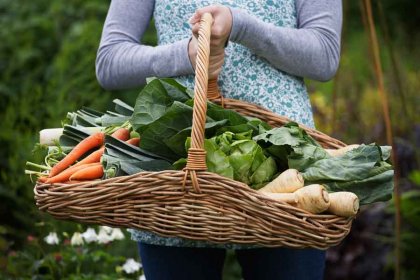
If you’re trying to save a few bucks during the pandemic, you might have thought about starting your own garden in order to reduce your grocery bill. Gardening can be the perfect pandemic activity. It’s relaxing, gets you out of the house for a little while, and if you’ve been furloughed, you’ll have plenty of time to pull weeds. And yes, growing your own food can definitely save you money on groceries—if it’s done the right way. Use the following strategies to ensure your garden doesn’t inadvertently turn into a money pit.
Make your own compost
The soil of your garden is integral to its success. Plants need nutrient-rich soil to develop properly. Unfortunately, if you live in an area where the soil is naturally poor, you could spend a fortune on soil amendments. You can overcome this obstacle by starting your own compost pile.
You’ll notice that some commercially available compost bins are quite expensive. They’re also not necessary. If you happen to have some concrete blocks, you can stack them to create your own compost container. Or, just use a freestanding pile in a corner of your yard. It’s ideal to have your pile consist of 80% carbon (dry, brown stuff like leaves, sawdust, and grass clippings) and 20% nitrogen (green plants, and food scraps like eggshells).
Start from seed
When you first start checking out your options, you’ll notice that you can buy either seeds or young seedlings. Buying pepper, tomato, or other seedlings will cost more than buying a few packets of seeds. Do note, however, that some seed packets cost more than others. Organic varieties are always more expensive. You can reduce your seed expenses by opting for non-organic varieties. Note also that some seeds are for hybrid varieties. If you plan to save the seed from the mature plants to sow next year, you’ll need to choose non-hybrids.
As you can see, gardening can be as expensive or as cheap as you make it. By taking a few shortcuts, you can reduce your start-up costs and still make your garden productive. In a few months, you’ll be harvesting fresh food and trimming your grocery bill.



